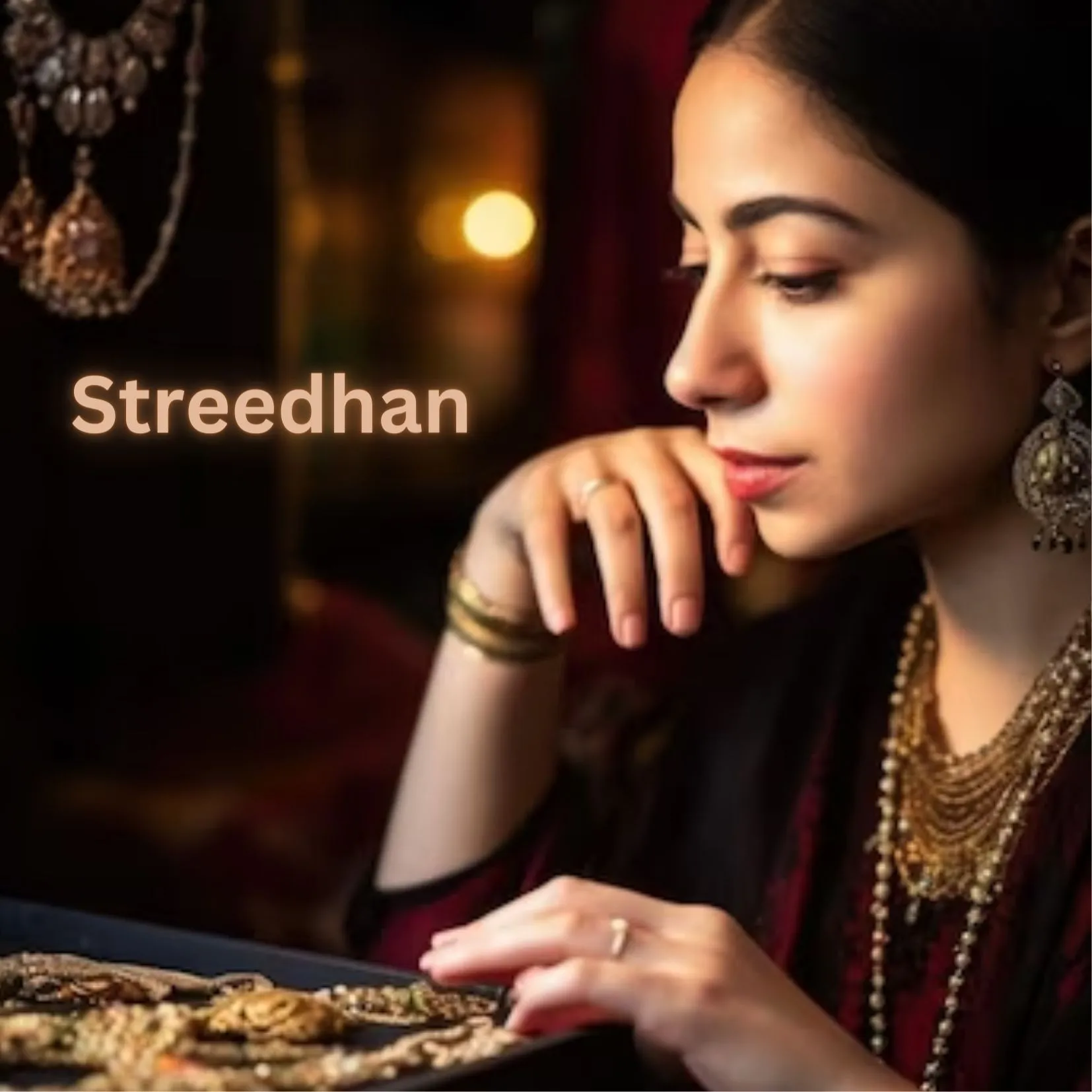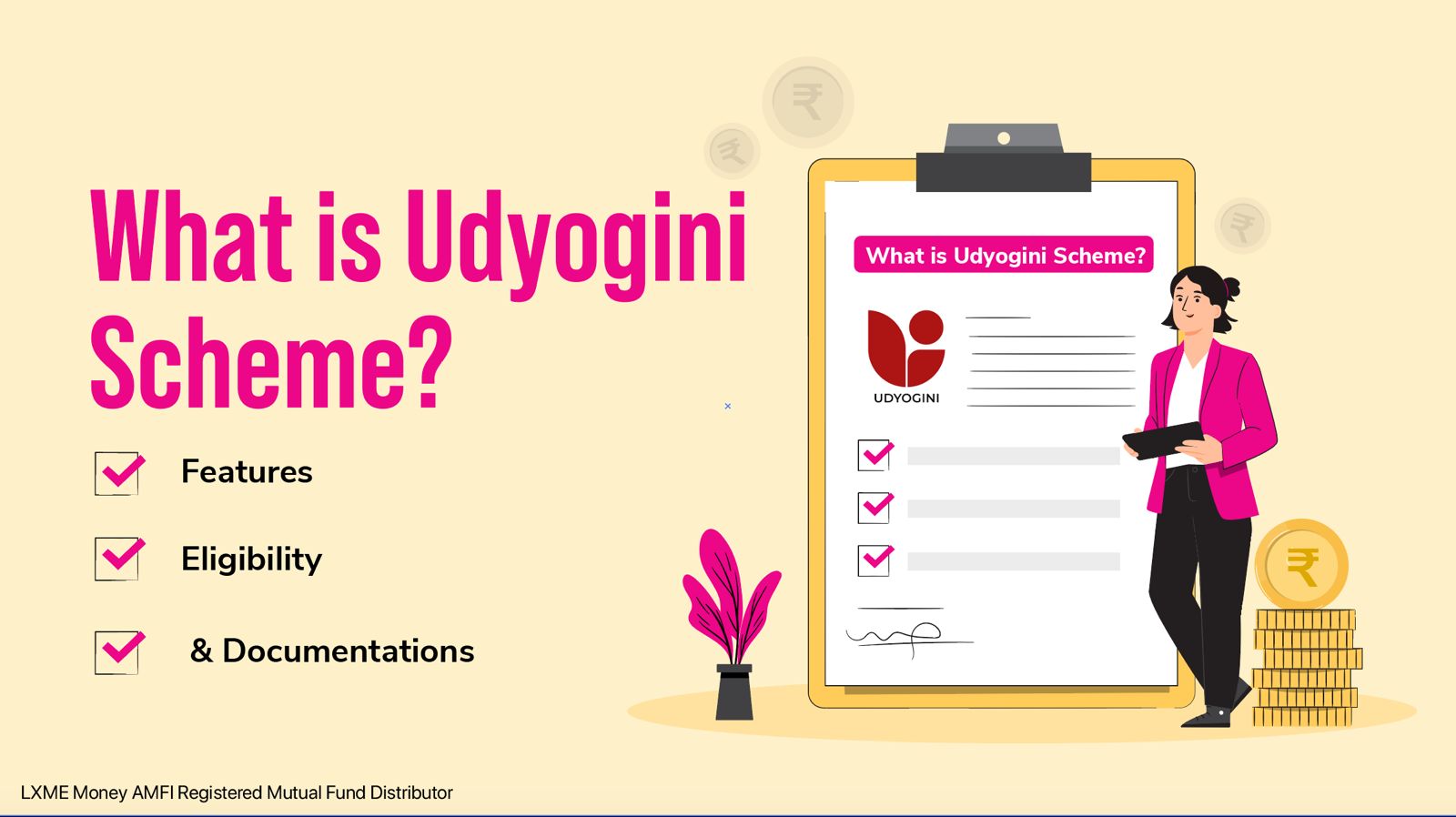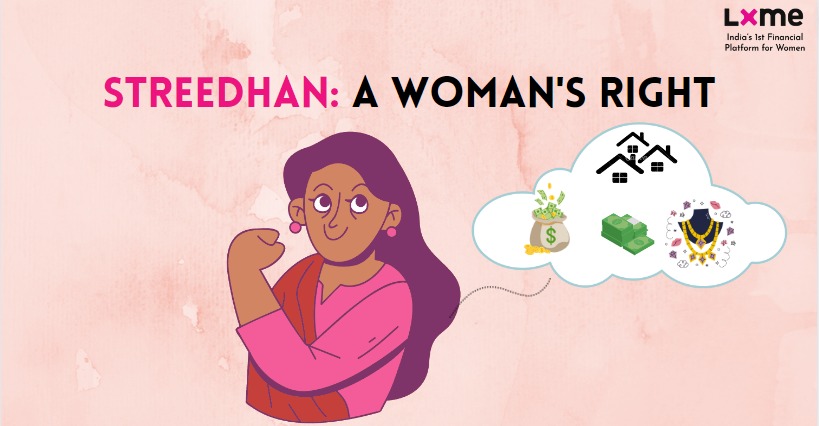Traditionally in India, women receive various types of gifts from their parents during their wedding or before marriage, a practice known as “Streedhan”. These gifts evidently become their husband’s property too after marriage. However, what do you think, do your husband or in-laws have the right over the Streedhan – the gifts and belongings you receive during your lifetime? The answer is NO!
What is Streedhan?
The word ‘’Streedhan” has been derived from the words ‘Stri’ meaning a woman and the word ‘dhana’ which means property. Therefore by combining these two words we get ‘property of woman’ her ‘Streedhan’.

As per Hindu Law, Streedhan refers to the property received by a woman in the form of a gift from her relatives during her wedding. She has inalienable rights over such property. This may include immovable property like houses or movable property like jewelry.
A woman has an absolute right over jewelry and other assets she has received from her parents or relatives. Her husband cannot acquire an interest in her jewelry and any other assets through marriage.
What property can be obtained by a woman with absolute rights?
According to Section 14 of the Hindu Succession Act, 1956 property obtained by a woman from the following sources is her absolute property:
> by inheritance
> By device –through a will or a settlement
> At a partition
> In lieu of maintenance
> By gift
> By personal skill and exertion
> Purchase and prescription –with the help of her own funds
> Acquired in any other manner- property received under a decree or award, or through adverse possession
Difference between Dowry and Streedhan
Streedhan is often misunderstood as dowry but these two are different things.
Dowry is any property or valuable security given or agreed by the bride’s side to the family of the bridegroom before, during, or after marriage, by exploiting or threatening (coercion) the girl or her family whereas Streedhan is the right of every woman which is being given voluntarily to the bride.
Dowry is the ritual that is followed which adds up the baggage of every girl’s family. With the spread of awareness, this system is been reducing but still, some ounce of this system is still floating in India.
Conclusion
To conclude,
An informed woman should make a list of all the gifts and properties received before, during, and after marriage from her family, husband’s family, friends, and other connections. The woman should keep papers of all the gifts received so that in case of any unfortunate situation, you are prepared for the same.
As women, you should be aware of all the legal rights you have and feel empowered and financially fearless!!
Related Article You may Like :- Health Insurance for Women
Share this blog with your family and friends if you find it insightful!!
Download the LXME app for more such content!
FAQS – Frequently Asked Questions
What is stridhan in divorce?
In the context of divorce, stridhan refers to the property that a woman can claim as her own, even after separation from her husband. It is seen as a measure of financial security for women in adverse situations like divorce.
What do you mean by stridhan?
Stridhan, derived from the Sanskrit words ‘Stri’ meaning woman and ‘dhan’ meaning property, refers to the property that a woman acquires during her lifetime. This can include gifts from her parents, in-laws, or others, received before, during, or after her marriage. It is considered the absolute property of the woman with full rights to dispose of it at her own pleasure.
What is stridhan from in laws?
Stridhan from in-laws refers to any gifts or property given to a woman by her in-laws during her marriage or afterwards. This forms part of her stridhan and is considered her exclusive property.
What is the difference between dowry and Streedhan?
The difference between stridhan and dowry lies in the element of demand and coercion. Dowry involves a demand from the groom’s family and is considered illegal and unethical. On the other hand, stridhan is voluntarily given to the bride without any demand or coercion, making it legal and an empowering aspect of a woman’s life.
Comment “?” if you found this blog helpful!!
Certainly! Here’s a revised version:
Feel free to bookmark this blog for future reference. Join our community to discover safe investment opportunities with the LXME app. Your financial journey begins here! 🚀
New Investor? Request a Callback.
Fill in your details and we will guide you at every step
other blogs

Smart Money April 17, 2024
Bear and Bull Market: What’s the Difference?
In bear markets, prices are falling, investor confidence is low and the economy is declining. While, in bull markets, prices are rising, investor confidence is high and there is good economic growth. You must have heard the terms ‘bullish market’ and ‘bearish market’ on the news. But, what do bear and bull market mean? Is … Bear and Bull Market: What’s the Difference?

Smart Money
What is Udyogini Scheme? Features, Eligibility & Documentations
Financial assistance has the power to transform a woman’s life, especially an underprivileged woman. This is why the Women Development Corporation offers a scheme called Udyogini Yojana to provide women with monetary help in setting up their business. What is the PM Udyogini Yojana Scheme? What are some Udyogini Scheme details? Let’s find out! What … What is Udyogini Scheme? Features, Eligibility & Documentations

Smart Money April 11, 2024
Mahila Udyam Nidhi Scheme: Eligibility Criteria, Interest Rate & More
The Mahila Udyam Nidhi Scheme aims to support women’s entrepreneurial ventures. It is an initiative by the Small Industrial Development Bank of India and offers financial assistance to women entrepreneurs at special interest rates. Women have proven that they can do anything they set their minds to. Against all odds, women are setting up their … Mahila Udyam Nidhi Scheme: Eligibility Criteria, Interest Rate & More









